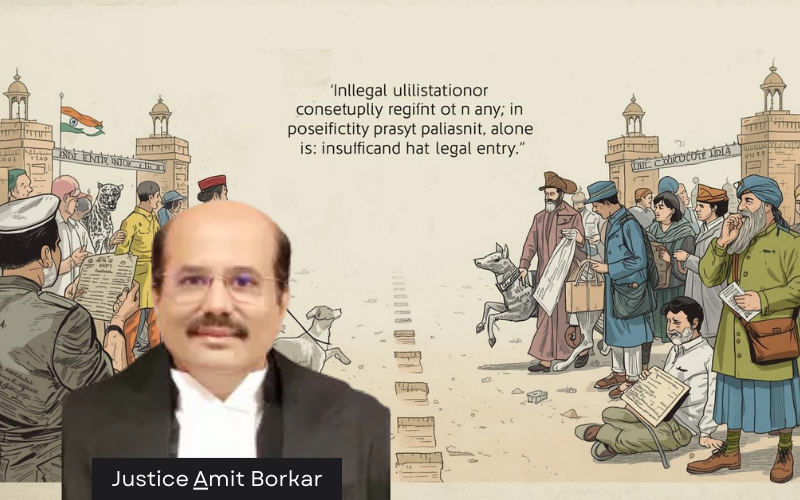Burden of Proof Lies on the Applicant to Establish Citizenship When Reasonable Suspicion of Foreign Origin is Raised
In the recent Bombay High Court judgment of Babu Abdul Ruf Sardar v. State of Maharashtra, the court faced the intricate task of balancing individual rights against national security concerns. The case delves into the complexities of citizenship verification, illegal immigration, and the role of identity documentation in asserting lawful residency in India.
The Case in Brief
The applicant, Babu Abdul Ruf Sardar, sought bail under Section 439 amid allegations of illegal entry into India, forgery of Indian identity documents, and benefiting from government schemes reserved for Indian citizens. The Bombay High Court, presided by Justice Amit Borkar, rejected the bail application, citing the ongoing investigation and potential national security implications.
Key Legal Provisions and Arguments
1. Criminal Allegations and Legal Framework:
The applicant was accused of violating multiple statutes, including the Bharatiya Nyaya Sanhita, 2023, the Passport (Entry into India) Act, 1950, and the Foreigners Order, 1948. The court emphasized that mere possession of Indian identity documents does not confirm citizenship, particularly when forged documents are suspected.
2. Citizenship Determination:
The court underscored the importance of the Citizenship Act, 1955, in resolving nationality claims. It clarified that while identity documents like Aadhaar and PAN cards serve identification purposes, they do not replace the stringent requirements for citizenship under the Act.
3. Burden of Proof:
Under the Foreigners Act, 1946, and relevant sections of the Citizenship Act, the burden of proving lawful citizenship falls on the individual when credible evidence suggests foreign nationality. The applicant failed to provide verified evidence to counter the allegations of Bangladeshi origin.
4. Investigation and National Security:
The court highlighted ongoing investigations into the applicant's digital communication records and potential cross-border links. Concerns were raised about the applicant's ability to abscond or tamper with evidence if granted bail, which could jeopardize national security.
Judicial Reasoning and Conclusion
The judgment reflects a cautious judicial approach towards cases involving national security and citizenship. The court adopted a stringent stance, prioritizing the integrity of the investigation over the applicant's plea for bail. It underscored that the allegations were not merely technical breaches but involved potential threats to national security.
The court's decision to reject bail was also influenced by the lack of authenticated documents proving Indian citizenship and the applicant's alleged connections with foreign entities. This highlights the judiciary's role in safeguarding national interests while ensuring that the legal process is not compromised.
Implications and Reflections
This case sheds light on the complexities involved in citizenship determination and the legal scrutiny required when national security is at stake. It underscores the need for robust mechanisms to verify identity documents and the challenges posed by illegal immigration.
The judgment also serves as a reminder of the evolving legal landscape under new legislative frameworks like the Bharatiya Nyaya Sanhita and the Bharatiya Nagarik Suraksha Sanhita. These laws aim to strengthen national security while balancing individual rights, a task that requires careful judicial interpretation.
In conclusion, the Babu Abdul Ruf Sardar case illustrates the intricate balance courts must maintain between individual liberties and national security. It highlights the critical role of thorough investigations and the legal frameworks guiding citizenship and immigration issues in India.
Babu Abdul Ruf Sardar v. State of Maharashtra, (Bombay) : Law Finder Doc id # 2762952




